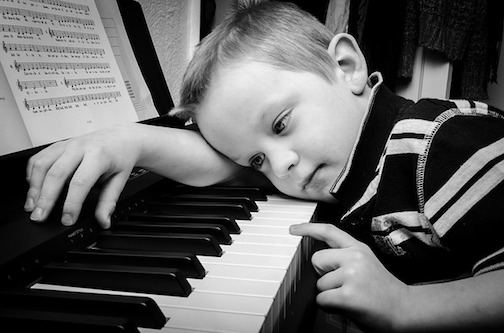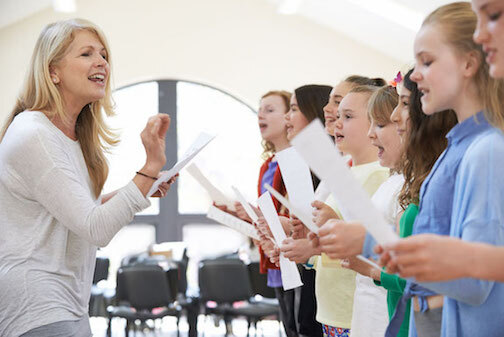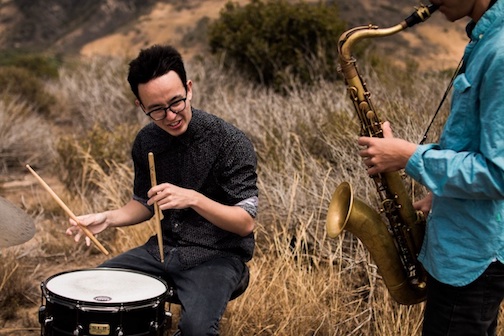Here comes the 7th and final installment of our Motivating Music Students Series. We’ll be discussing social motivation: what it is, how to identify socially motivated students, and what you can do to help nurture this motivation.
Let me start off with addressing one of the biggest issues I have with traditional music lessons: the loneliness of it all. See, the things about music that are so great are the social aspects of it: it brings people together, whether it’s playing with, playing for, or listening to others. But why is the training that leads up to this so solitary? Traditional lessons are a weekly 1-on-1 with a teacher, and the practice time in between is typically alone as well. I see all too many students getting bored because they don’t have the usual friend/peer connection in this activity to give them a reason to keep coming back.

Yes, most successful musicians started this way – but do most kids take lessons to become top musicians? I guess another way to word this is: What are your goals for the student? Are you chosen because you’re the tough teacher that whips students into shape and makes virtuosos of them? Or do you aim more to nurture the child’s love for music and, you know, make sure they don’t quit? If you align more with the latter and have very socially motivated students that aren’t getting that enjoyment in learning and playing music in the regular lesson format, this article is for you.
Because let’s face it – the new generation is more different than any that’s come before, and they have different needs and expectations. In this collaborative and connected world, more people expect to encounter social aspects in their daily activities. More people are feeling a need to be connected to others around them, which makes them, in turn, more socially motivated than ever.
How do I identify my socially motivated students?
Being socially motivated covers a lot of things, but of course – it’s being motivated, somehow, by the presence of other people. They could be students who are motivated by having others rely on them or a feeling of belonging – like being in a band or small group. You may also find some students thrive in a leadership role in these settings. Or, it could be friendly (or serious!) competition. Some kids are natural-born competitors, and that thrill might be missing from traditional music lessons (although it’s a big part of being a professional musician!).
Others just love playing for others and showing off what they can do – you might see students who come alive in front of an audience.
So if you see that a student seems to be withering away in a solitary setting, let’s get them up and meeting/working with other students! The following are some ideas on what you can do to help your socially motivated student. Yes, most of these require some change or work on your (the teacher’s) part. But if you think your students would really benefit and continue with music longer because of it (and, better for the student = greater referrals/retention!), it might be worth considering the change.
How can I motivate these students?
Group lessons

Most other extracurricular activities are taught in groups, like art, math, sports, dance, etc. So why not music? It seems this was the only activity in my childhood where I’d get dropped off, go into a room alone, and then go home and practice alone. Because of this, it really wasn’t exciting or fun. I really had no reason to look forward to physically being at lessons. But with group settings, there are so many social motivators to be gained:
They get to show off. If I practiced hard for an activity, I looked forward to being able to perform it in a group setting where not only the teacher but my peers would be able to see and appreciate my efforts!
(Or, the opposite:)
They practice to avoid looking bad in front of more people. No one wants to be the worst one in a group lesson! I would practice doubly hard so I wouldn’t make a fool out of myself in front of double the people.
Friendly competition. This sort of goes with the showing off. With group lessons, they have others to measure their improvement against & improve alongside.
Everything is more fun with friends! There’s a sense of comfort in knowing that others are in the same boat as you. Students may struggle with feeling motivated to start learning a tough piece – but if they know others are learning it too, it won’t feel so bad.
Getting help. Let’s face it: when you were really young, most times, you would rather ask your peers a question vs. the teacher. It’s just how it is with kids, especially the shy ones. If they have connections to peers, some students may be more likely to reach out and get help they otherwise wouldn’t have asked for.
Do you currently teach individual lessons and are not sure how to make the leap to groups? Check out our interview with a teacher who successfully did just that. We also have data that shows that students in group lessons practice more than those in individual lessons.
Band

Form a band (or trio/duet groups) with other students. This can be within group lessons, or with other students in your studio. It’s even better if you teach at a school with many different instrument lessons! Often times other teachers will be glad to work with you to pair up and provide different performance experiences for their students.
You could also look to find a youth symphony or other ensemble opportunities outside of lessons.
This sort of difference might be refreshing to some, and the motivators are similar to those of group lessons.
Performance opportunities
A lot of students love showing off what they can do! Knowing that they will get to show off, whether it’s an upcoming recital or a small weekly performance gathering can do wonders for motivation. If the love of performance is what keeps a student going, by all means give them performance opportunities! You can also see if your students can play at nearby restaurants, cafes, or open-mic nights.
Studio Community

With a practice app like Better Practice, you can provide friendly social competition even when your students are at home. You can get many of the same benefits of group lessons even with your private students. With Better Practice, students can see how much others are practicing and get on leaderboards for being a top practicer. You can also easily run studio-wide contests like a 30-day Practice Challenge to get everyone working towards the same goal.
How do you use social motivation in your studio?
I’d love to hear about how you encourage social aspects in your teaching. Leave a comment below to help our community of hundreds of music teachers and please share this article if you think it can help others as well!
If you liked this article, you may like:
What If Your Music Students Were Meant To Be Groupies
Teaching The Next Generation Of Musicians
Megan’s Story: From Individual To Group Lessons
Better Practice is chock-full of social motivators, so practice time at home doesn’t have to feel so lonely. Students can see their studiomates, compete with them for badges, and see how much others are practicing overall!